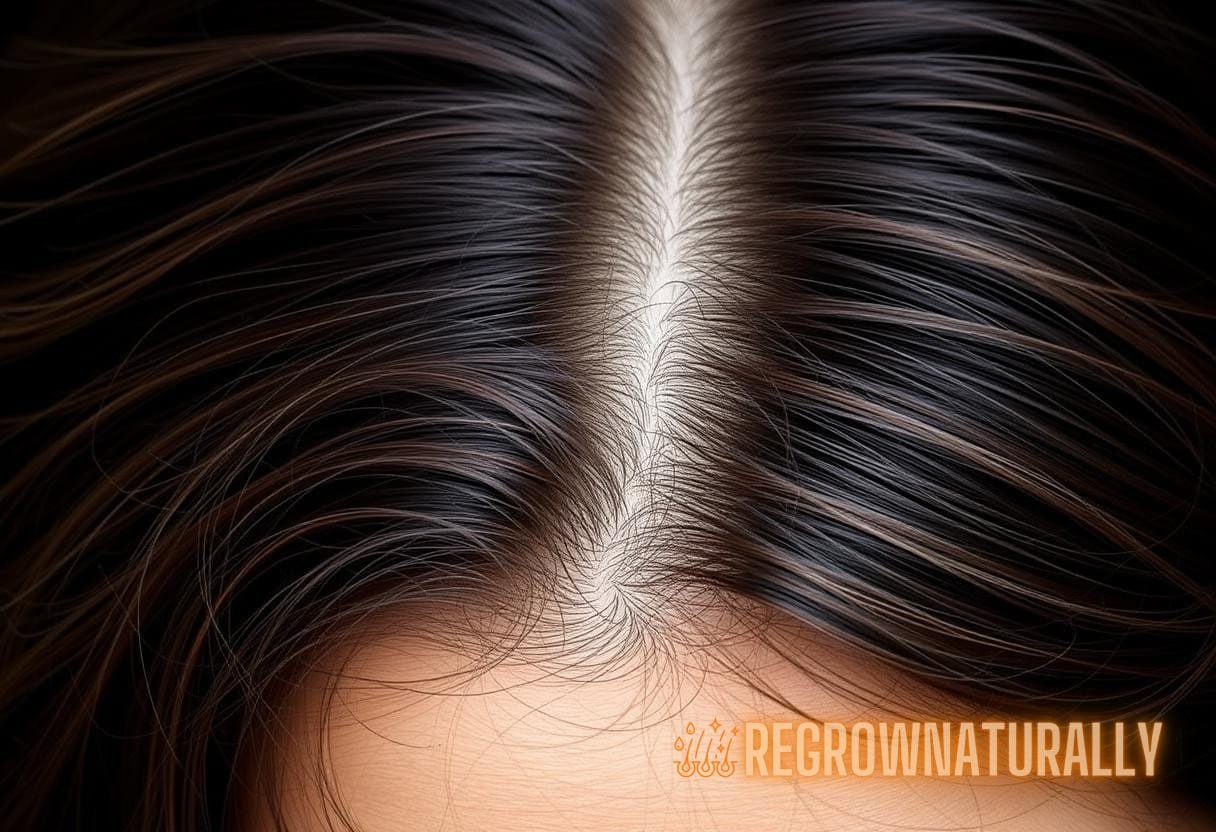Decoding Hair Growth: The Intricate Relationship Between Genetics, Nutrition, and Lifestyle Choices
Hair growth is a complex biological process influenced by a multitude of factors, primarily genetics, nutrition, and lifestyle choices. For those seeking to understand how to achieve optimal hair growth success, it is essential to dissect these elements to identify effective strategies.
Understanding Genetics and Hair Growth
Genetics plays a pivotal role in determining not only the characteristics of your hair but also the rate and efficiency of hair growth. Each individual inherits unique genes from their parents, which contribute to a variety of hair traits, including:
- Hair texture: Straight, wavy, or curly.
- Color: The shades of hair, which can range from blond to black.
- Thickness: The diameter of each hair strand.
- Hair growth cycle: Duration of the anagen (growth) phase, which can significantly affect hair length over time.
A significant piece of research published in the journal Dermatology points out that variations in the fibroblast growth factor 5 (FGF5) gene can profoundly impact the length of the hair growth phase, thereby influencing hair growth success. Individuals with longer hair growth phases can achieve commendable lengths compared to those with shorter phases due to genetic predisposition.
The Role of Nutrition in Hair Health
Nutritional factors are equally crucial in facilitating hair growth success. A well-balanced diet can provide essential nutrients that support hair follicles and overall scalp health. The following nutrients are particularly important:
- Proteins: Essential for producing keratin, the main structural component of hair. Sources include lean meats, eggs, and legumes.
- Iron: Necessary for oxygen delivery to hair follicles. Iron deficiency can lead to telogen effluvium, where more hair falls out than grows back. Foods rich in iron include spinach, lentils, and red meat.
- Omega-3 fatty acids: Found in fish and walnuts, these fats nourish hair and support its growth.
- Vitamins: Particularly vitamins A, C, D, and E, all contribute to healthy hair. For instance, vitamin D is crucial for the hair follicle cycle.
- Biotin: A water-soluble B-vitamin important for the production of keratin. Clinical studies have shown that biotin supplementation can improve hair growth in individuals suffering from deficiency.
According to a survey by the National Institute of Health, adequate nutrient intake correlates directly with hair quality and longevity. Individuals who follow a diet rich in these nutrients report higher levels of hair health and growth than those who do not.
Lifestyle Choices Affecting Hair Growth
In addition to genetics and nutrition, lifestyle choices significantly impact hair growth and overall health. Key lifestyle factors include:
- Stress Management: Chronic stress can lead to hair loss through androgenic effects on hair follicles. Methods like meditation, yoga, and regular exercise can mitigate stress.
- Smoking: Studies have indicated a link between smoking and hair loss. Quitting smoking can improve overall health and potentially facilitate hair regrowth.
- Hydration: Drinking plenty of water is essential for maintaining bodily functions, including promoting hair growth.
- Hair Care Practices: Minimizing heat styling, using gentle shampoos, and protecting hair from environmental stressors can help maintain healthy hair.

A 2020 survey in the journal International Journal of Trichology highlighted that individuals who adopted healthier lifestyles noticed a significant reduction in hair thinning and fall, paving the path for hair growth success.
Monitoring Hormonal Influences
Hormones dramatically influence hair growth and hair loss. Conditions such as hormonal imbalances, particularly involving androgens, can lead to hair thinning and loss. Both men and women can experience this. In women, hormonal changes during pregnancy, menopause, or due to conditions like polycystic ovary syndrome (PCOS) can result in hair loss. For men, male-pattern baldness is largely influenced by testosterone levels.
Identifying Conditions that Impact Hair Growth
Several medical conditions and treatments can adversely affect hair growth. Understanding these factors can help in mitigating their impact:
- Alopecia Areata: An autoimmune disorder leading to hair loss in patches.
- Thyroid Disorders: Hypothyroidism and hyperthyroidism can result in abnormal hair growth patterns.
- Chemotherapy: Often leads to temporary hair loss during cancer treatment.
- Scalp Conditions: Conditions like psoriasis can affect the scalp’s health and, consequently, hair growth.
Individuals confronting these issues should consult healthcare providers to devise strategic interventions that can mitigate hair loss and promote hair growth success.
Real-World Examples of Hair Growth Success
Real-world success stories often serve as a dynamic source of inspiration. Consider the case of Jessica, a 30-year-old woman who struggled with alopecia areata. After incorporating a nutrient-rich diet, undergoing therapy for stress management, and following a targeted hair care regimen, Jessica experienced significant hair regrowth over a year. This is a testament to the importance of a holistic approach toward hair growth.
Moreover, Michael, a 45-year-old male dealing with male-pattern baldness, turned to a combination of finasteride and a specialized hair nutritive regimen which resulted in considerable hair regrowth after six months. Michael credited his success not only to medication but also to lifestyle changes, highlighting the necessity of a comprehensive strategy in achieving hair growth success.
Conclusion: A Multi-Faceted Approach for Hair Growth Success
The intricate relationship between genetics, nutrition, and lifestyle choices is evident in driving hair growth. By understanding these factors and implementing a multi-faceted approach, individuals can significantly enhance their hair health and achieve their desired hair growth success. Research continues to reveal more about the mechanisms impacting hair growth, promising new insights and tools to help those facing hair loss challenges.



